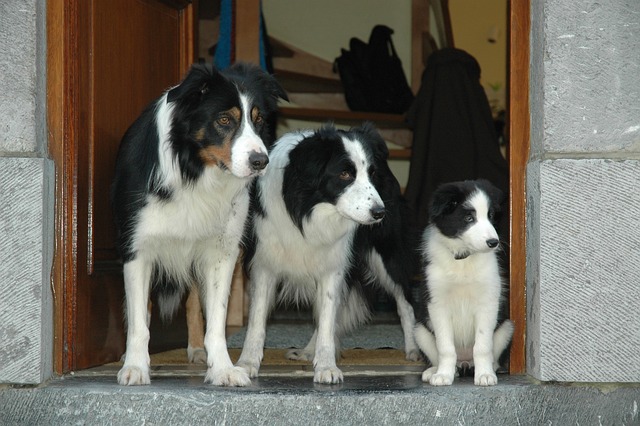
Miniature Border Collies have become a popular topic among dog lovers. These dogs are known for their intelligence, agility, and herding abilities. However, many people are wondering whether Miniature Border Collies actually exist or not.
The answer to this question is not straightforward. While there is no official breed standard for Miniature Border Collies, some breeders have been selectively breeding smaller Border Collies to create a smaller version of the breed. These dogs are often referred to as Miniature Border Collies or Miniature Collies. However, it is important to note that these dogs are not recognized as a separate breed by major kennel clubs.
Understanding Miniature Border Collies
Miniature Border Collies are a smaller version of the Border Collie breed. They are often sought after by people who love the energy and intelligence of the Border Collie but want a smaller dog. However, it is important to note that there is no official breed standard for Miniature Border Collies, and they are not recognized by major kennel clubs.
The Miniature Border Collie is not a separate breed, but rather a result of breeding smaller Border Collies. This is achieved through selective breeding for smaller size, which is known as miniaturization. It is important to note that miniaturizing a breed can lead to health problems, such as joint issues and respiratory problems.
Due to the lack of official recognition, there is no set size for Miniature Border Collies. However, they are generally smaller than the standard Border Collie, weighing between 20-35 pounds and standing 12-18 inches tall at the shoulder. They are still highly energetic and intelligent, and require plenty of exercise and mental stimulation.
It is important to do your research and find a reputable breeder if you are interested in a Miniature Border Collie. A good breeder will prioritize the health and well-being of their dogs and will be able to provide information about the breeding process and any potential health issues. Additionally, it is important to consider adopting a dog from a rescue organization, as there are many Border Collie rescues that may have smaller dogs available for adoption.
Overall, while Miniature Border Collies may be a desirable option for those who want a smaller dog with the energy and intelligence of a Border Collie, it is important to consider the potential health risks and to do thorough research before making a decision.
Genetics and Breeding
The Border Collie is a purebred dog breed recognized by the American Kennel Club (AKC) and other major kennel clubs. Miniature Border Collies are not recognized as a separate breed by any major kennel club, and there is no official standard for their size.
Breeding miniature Border Collies involves selecting dogs that are smaller than the breed standard and breeding them together. This can be done through several methods, including breeding runts or using crossbreeding to introduce genes from smaller breeds.
However, breeding runts or breeding from smaller dogs can lead to health problems in the offspring. Dwarfism, a genetic disorder that affects bone growth and development, is one such problem. The dwarfism gene can be passed down from parent to offspring, and can cause a variety of health issues such as joint problems, respiratory issues, and even premature death.
Another genetic disorder that can affect Border Collies is Trapped Neutrophil Syndrome (TNS), which is a hereditary condition that affects the immune system. Chondrodysplasia, a genetic disorder that affects cartilage and bone development, can also affect Border Collies.
To ensure the health and well-being of the breed, it is important to breed from dogs with a diverse genetic background and to avoid breeding from dogs with known genetic defects. A responsible breeder will conduct health screenings on their breeding dogs and provide a pedigree for any puppies they produce.
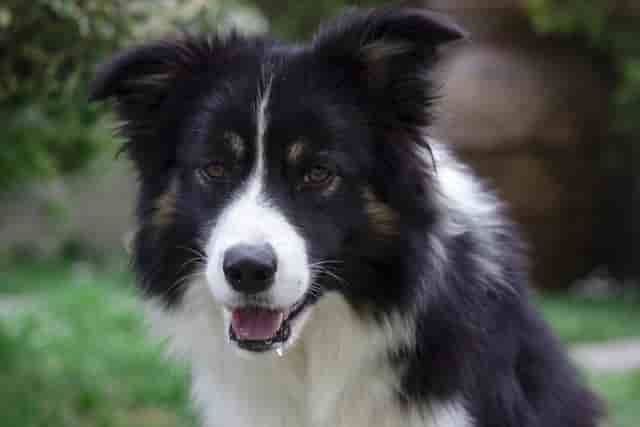
Physical Characteristics
Border collies are a medium-sized breed of dog. They typically weigh between 30 and 55 pounds and stand 18 to 22 inches tall at the shoulder. Their appearance is distinctive, with a lean, muscular build and a long, tapered snout. Border collies have a double coat, with a soft undercoat and a longer, coarser outer coat that can be straight or slightly wavy.
Border collies come in a variety of coat colors, including black and white, red and white, and tri-color. Some may also have merle or brindle patterns. The breed’s coat is known for its high maintenance, requiring regular brushing and grooming to prevent matting and tangling.
Personality and Temperament
Border collies are known for their intelligence, high energy, and workaholic nature. Miniature border collies share many of these traits, but their personality and temperament can vary depending on breeding and individual differences.
Overall, miniature border collies are highly intelligent and trainable dogs. They are eager to please their owners and enjoy learning new tricks and commands. However, they can also be independent and stubborn at times.
In terms of temperament, miniature border collies tend to be friendly and affectionate with their owners. They are also generally good with children and other pets, although early socialization is important.
Due to their high energy levels, miniature border collies require plenty of exercise and mental stimulation. They excel at agility, flyball, and other activities that challenge their minds and bodies.
Health Concerns
When it comes to miniature Border Collies, there are some health concerns that potential owners should be aware of. While these dogs are generally healthy, there are a few conditions that they may be prone to.
One of the most common health problems in Border Collies, regardless of size, is seizures. While there is no cure for seizures, they can be managed with medication and a careful diet. Respiratory problems can also be an issue, particularly in dogs with short snouts. These dogs may be more prone to breathing difficulties, especially during exercise or in hot weather.
Heart defects are another potential health concern in miniature Border Collies. Some dogs may be born with heart abnormalities that can cause problems later in life. These issues can range from minor to severe, and may require medication or surgery to manage.
Weak bones and joint pain can also be an issue in miniature Border Collies. These dogs may be more prone to fractures or other injuries due to their small size. Owners should take care to provide their dogs with a healthy diet and plenty of exercise to help keep bones and joints strong.
Overall, while miniature Border Collies are generally healthy dogs, there are a few health concerns that owners should be aware of. Regular veterinary check-ups and a careful diet and exercise plan can help keep these dogs happy and healthy for years to come.
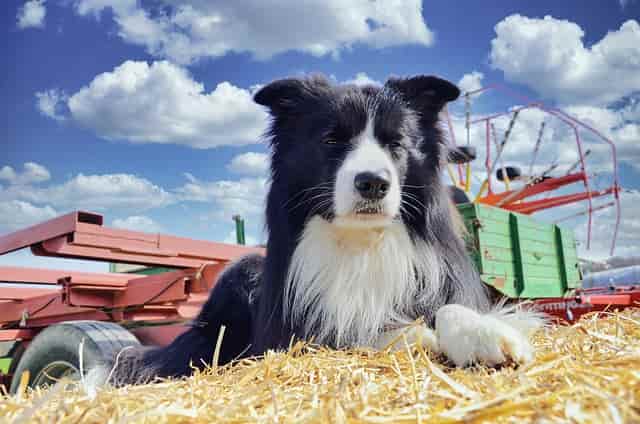
Care and Maintenance
When it comes to caring for a miniature Border Collie, there are several things to keep in mind. These dogs are active and intelligent, so they require a significant amount of exercise and mental stimulation to stay healthy and happy.
Exercise
Miniature Border Collies need at least 60 minutes of exercise per day. This can include walks, runs, hikes, or playtime in a fenced-in yard. These dogs are highly active and need plenty of opportunities to run and play.
Food and Diet
It’s essential to feed your miniature Border Collie a high-quality diet that meets their nutritional needs. Look for dog food that contains high-quality protein, healthy fats, and plenty of vitamins and minerals.
Grooming
Miniature Border Collies have a thick coat that requires regular grooming to keep it looking and feeling its best. Brush your dog’s coat at least once a week to remove loose fur and prevent matting.
Mental Stimulation
These dogs are highly intelligent and need plenty of mental stimulation to stay happy and healthy. Consider providing your miniature Border Collie with puzzle toys, interactive games, and training sessions to keep their mind engaged.
Training and Exercise
Border Collies are known for their high energy levels and their need for physical and mental stimulation. Miniature Border Collies are no exception. As such, it is important to provide them with regular exercise and training to keep them happy and healthy.
Training a Miniature Border Collie is generally straightforward. They are highly intelligent and eager to please, making them very trainable. Positive reinforcement techniques, such as using treats and praise, are usually the most effective. Consistency is key, and it is important to start training early to establish good habits.
In terms of exercise, Miniature Border Collies require daily physical activity to burn off their excess energy. A minimum of 30 minutes of exercise per day is recommended, but more is always better. Activities such as walking, running, hiking, and playing fetch are all great options.
It is important to note that Miniature Border Collies are very athletic and excel in sports such as agility. Participating in agility training or competitions can be a great way to provide both physical and mental stimulation for your Miniature Border Collie.
Overall, training and exercise are essential for the health and happiness of your Miniature Border Collie. By providing them with regular training and physical activity, you can help ensure they live a long and fulfilling life.
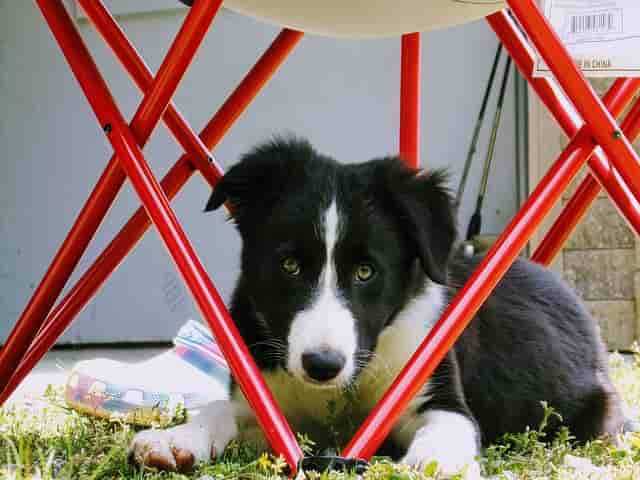
Interaction with Family and Other Pets
Miniature Border Collies are known for their friendly, loyal, and affectionate nature. They are great family dogs and love to spend time with their owners. They are also good with other pets, but their herding instinct may kick in when they encounter small animals.
When it comes to small children, Miniature Border Collies are generally patient and gentle. However, parents should always supervise interactions between their children and dogs to ensure that both are safe. It’s important to teach children how to properly interact with dogs and respect their boundaries.
Miniature Border Collies are good with other dogs, but they may try to herd them if they sense that they are not following their lead. It’s important to socialize Miniature Border Collies from a young age to ensure that they are comfortable around other dogs.
Choosing the Right Breeder
When looking for a miniature Border Collie, it is important to choose the right breeder. Here are some things to consider when selecting a breeder:
Reputation
It is important to research the breeder’s reputation before making a purchase. Look for online reviews and ask for references from previous customers. A reputable breeder will be happy to provide references and answer any questions you may have.
Health Testing
A responsible breeder will perform health testing on their dogs before breeding. This testing can include hip and elbow evaluations, eye exams, and genetic testing. Be sure to ask the breeder about their health testing practices before purchasing a puppy.
AKC Registration
The American Kennel Club (AKC) is a reputable organization that registers purebred dogs. While registration with the AKC is not a guarantee of quality, it does provide some assurance that the breeder is following certain standards. Be sure to ask the breeder if their dogs are registered with the AKC.
Questions to Ask the Breeder
When speaking with a breeder, be sure to ask plenty of questions. Here are some questions to consider:
- How long have you been breeding miniature Border Collies?
- What health testing do you perform on your dogs?
- Can you provide references from previous customers?
- Are your dogs registered with the AKC?
- What is your policy on returning puppies if the owner is unable to keep them?
By choosing the right breeder, you can ensure that you are getting a healthy and well-bred miniature Border Collie.
Alternative Miniature Breeds
While there may not be a true miniature Border Collie breed, there are several alternative miniature breeds that may fit the bill for those looking for a smaller dog with similar traits.
Pomeranian
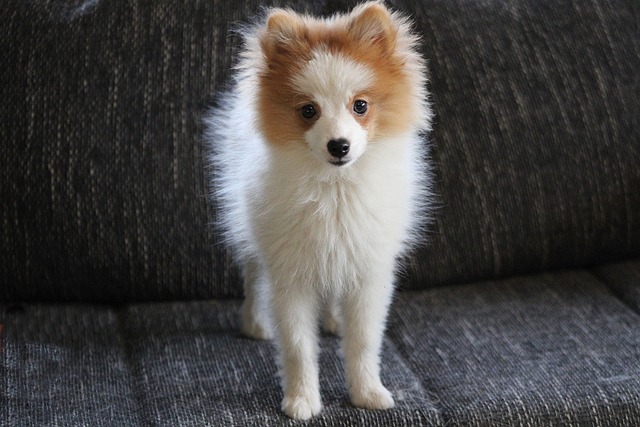
Pomeranians are a small breed that can range from 3 to 7 pounds. While they may not have the same herding instincts as Border Collies, they are known for being intelligent and active dogs. They can be trained to do tricks and are often used in agility competitions.
Poodle
Poodles come in various sizes, including toy and miniature sizes. They are highly intelligent dogs that are known for being easy to train. They are also hypoallergenic, making them a great choice for those with allergies.
Mixed Breed
Mixed breed dogs can come in all shapes and sizes, including miniature versions. Adopting a mixed breed dog can be a great way to get a dog with the traits you are looking for, while also giving a dog in need a loving home.
Border Collie Mix
Border Collie mixes can come in a variety of sizes, including smaller versions. They may not have all the traits of a purebred Border Collie, but they can still be great pets for those looking for a smaller dog with similar characteristics.
Shetland Sheepdog
Shetland Sheepdogs, or Shelties, are a small breed that can range from 15 to 25 pounds. They are known for being intelligent and trainable, and they also have a herding instinct similar to Border Collies.
Jack Russell

Jack Russells are a small breed that can range from 13 to 17 pounds. They are known for being energetic and intelligent dogs that are often used in hunting and agility competitions.
Frequently Asked Questions
What is the average size of a Border Collie?
The average size of a Border Collie is between 18 and 22 inches at the shoulder, and they typically weigh between 30 and 55 pounds.
Are there different breeds of Border Collies?
No, there is only one breed of Border Collie, but there may be variations in appearance and temperament based on the dog’s lineage.
Can Border Collies be bred to be smaller?
While it is possible to breed Border Collies to be smaller, it is not recommended as it can lead to health problems and is not in line with breed standards.
What are the characteristics of a miniature Border Collie?
There is no such thing as a miniature Border Collie. Any dog marketed as such is likely a mixed breed or a smaller version of the breed achieved through breeding practices.
How much do miniature Border Collies typically cost?
As there is no such thing as a miniature Border Collie, there is no set price for them. However, reputable breeders of standard Border Collies typically charge between $800 and $2,500 for a puppy.
Are miniature Border Collies recognized by breed associations?
No, miniature Border Collies are not recognized by any reputable breed associations as they do not meet the breed standard.